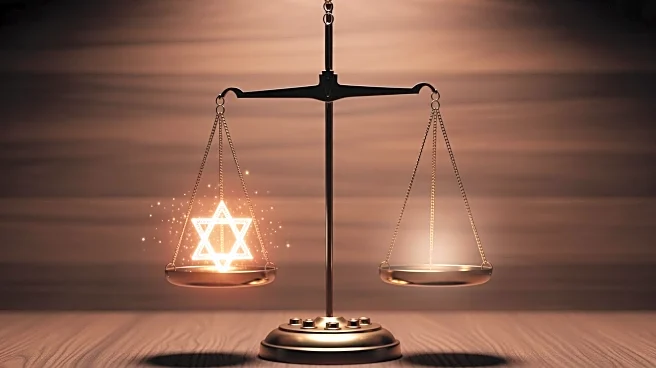Rapid Read • 8 min read
Hiroshima commemorated the 80th anniversary of the atomic bombing, with survivors expressing frustration over the growing support for nuclear weapons as deterrence. The anniversary is significant as the number of survivors is rapidly declining, with their average age now over 86. Minoru Suzuto, a 94-year-old survivor, emphasized the importance of sharing their experiences before it's too late. The bombing on August 6, 1945, resulted in 140,000 deaths in Hiroshima, followed by 70,000 in Nagasaki. Hiroshima Mayor Kazumi Matsui warned against the acceptance of nuclear weapons for national security, citing conflicts like Russia's war in Ukraine. He urged younger generations to recognize the potential inhumane consequences of such policies. Nihon Hidankyo, a grassroots organization of survivors, highlighted the urgency of changing nuclear weapons states' attitudes.
AD
The anniversary underscores the ongoing threat posed by nuclear weapons and the need for disarmament. Survivors' voices are crucial in advocating for peace and influencing global policies. The event highlights the tension between nuclear deterrence and disarmament efforts, with countries like Japan under the U.S. nuclear umbrella. The survivors' call for abolishment contrasts with the international community's support for deterrence, raising ethical and security concerns. The presence of representatives from 120 countries at the ceremony reflects the global interest in nuclear disarmament and peacebuilding.
The survivors and Hiroshima's mayor are urging Japan to sign the Treaty on the Prohibition of Nuclear Weapons, despite the government's reliance on U.S. nuclear protection. The international community's response to these calls could influence future disarmament efforts. The survivors' diminishing numbers add urgency to preserving their testimonies and advocating for a nuclear-free world. The anniversary may prompt renewed discussions on nuclear policies and the balance between deterrence and disarmament.
The ethical implications of nuclear deterrence versus disarmament are significant, as survivors' experiences highlight the human cost of nuclear warfare. The event serves as a reminder of the devastating impact of nuclear weapons and the importance of pursuing peace. The survivors' advocacy challenges the justification of nuclear weapons and calls for a reevaluation of global security strategies.
AD
More Stories You Might Enjoy










